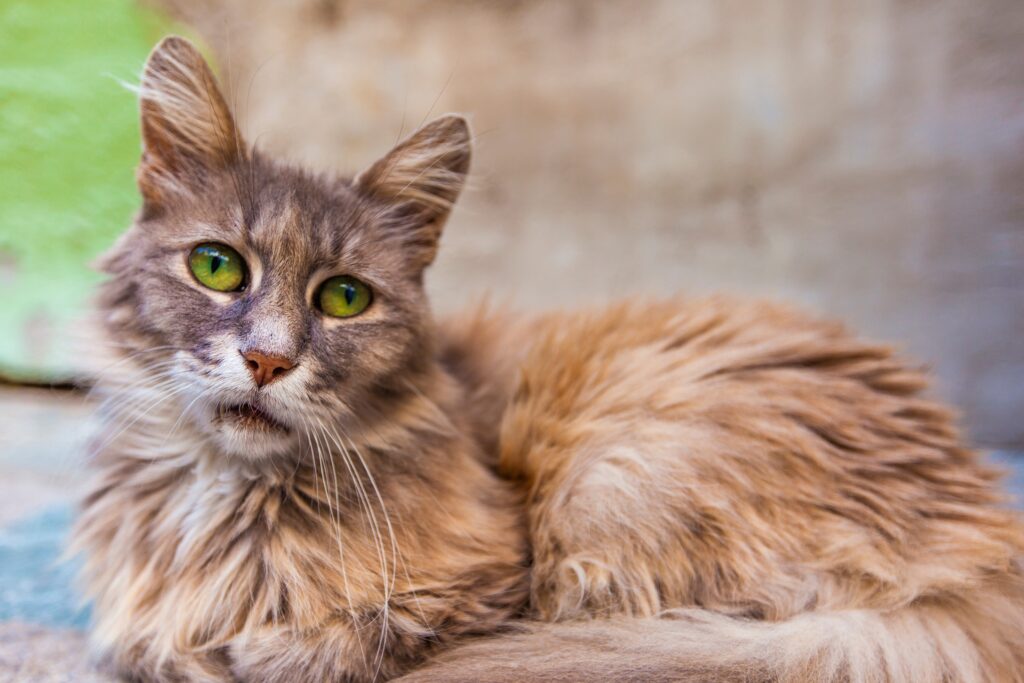As our feline friends grow older, their needs begin to change, requiring a bit more attention and care.
Whether you’ve had your cat since it was a playful kitten or you’re adopting an older cat, understanding their unique dietary requirements is a key component to making sure they stay happy and healthy in their twilight years.
This article is designed to guide you through the essential aspects of feeding and caring for a senior cat, offering practical tips and expert advice to make sure your cat receives the proper nutrition as they age.
So, if you’re ready to provide your senior cat with the best possible care, keep reading for some essential tips and information.
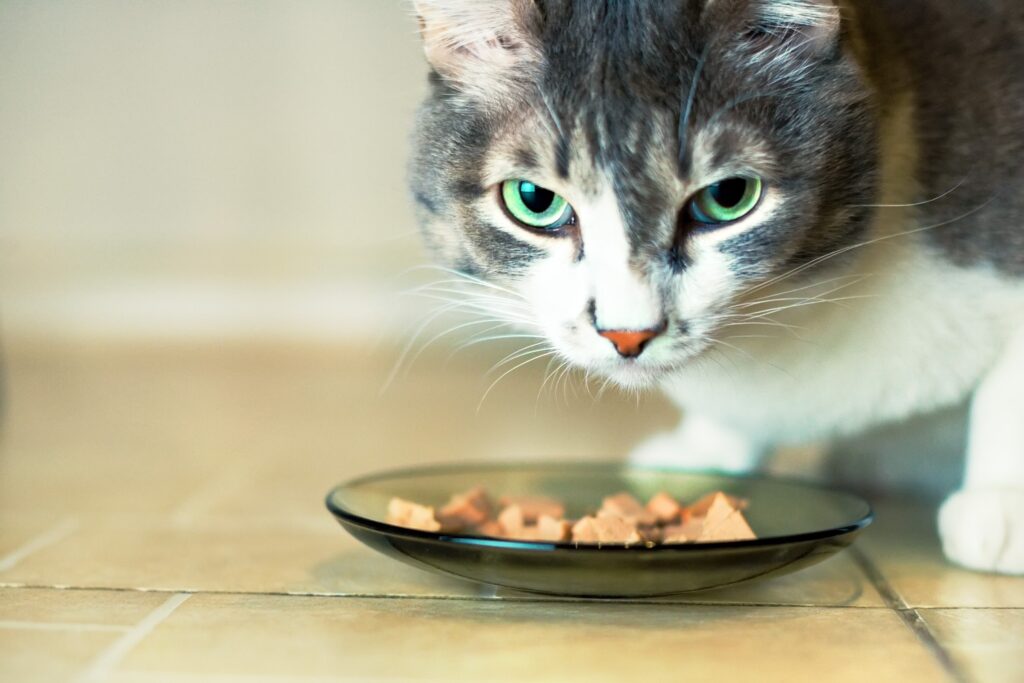
Understanding Senior Cat Nutrition
As cats mature, their nutritional requirements evolve, meaning their diets need to be adjusted to keep them healthy. Their metabolism, activity levels, and overall health significantly change over the years, which directly influences their dietary needs.
According to the American Association of Feline Practitioners (AAFP), senior cats typically have slower metabolic rates and reduced lean muscle mass, which can impact how their bodies process and use nutrients (1).
Senior cats therefore often require diets lower in calories yet higher in easily digestible proteins to support muscle maintenance and overall health. Additionally, their digestive systems may become less efficient, meaning they require increased dietary fiber to promote gastrointestinal health and regularity.
The AAFP also suggests that older cats may benefit from higher levels of specific vitamins and antioxidants to support immune function and mitigate the effects of aging.
Nutritional Guidelines
Protein, Phosphorus, and Sodium
Protein remains a cornerstone of a senior cat’s diet. Contrary to earlier practices, restricting protein in senior cats, even those with early renal disease, is not necessary. High-quality, easily digestible animal proteins are recommended.
Phosphorus levels must be carefully controlled to protect kidney health. High phosphorus intake can damage kidneys even in young cats (2), and even worse so in aging cats. Choosing foods with appropriate phosphorus levels is a must, especially in senior cats or those with existing kidney issues.
Sodium management is also important. While moderate sodium levels are necessary for normal cellular function, excessive sodium can contribute to hypertension and other cardiovascular issues.
Controlling Calorie Intake and Nutrient Excesses
Many cats need fewer calories as they age, due to decreased activity levels. However, some may require a higher caloric food to maintain their body weight if they have decreased appetites or a chronic illness that results in weight loss.
At the same time, it’s also important to avoid nutrient excesses in senior cats, as their bodies may not be able to process and eliminate them as efficiently. This can lead to serious health issues such as kidney disease and diabetes.
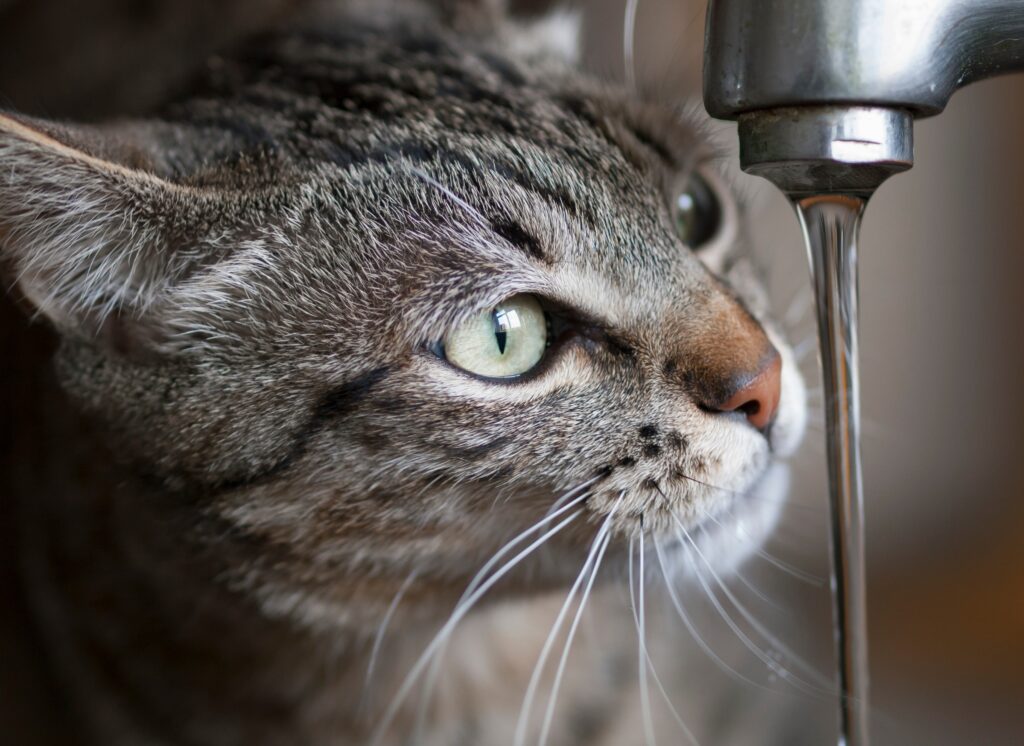
Additional Considerations
Hydration is another critical aspect of caring for senior cats. Older cats often have a reduced sense of thirst, making them prone to dehydration.
Aging cats are more susceptible to the negative impacts of dehydration due to decreased kidney function. Even mild dehydration can be dangerous for senior cats.
Failure to get enough water can lead to worsening kidney disease, urinary tract problems, and even organ failure. It can also contribute to issues like constipation and lethargy, affecting their overall quality of life.
Choosing Senior Cat Food
Selecting the right food for your senior cat is important as they age. Here are key factors to consider:
What To Look For in Senior Cat Food
Opt for cat food specifically formulated for seniors. Look for a label that indicates it meets the nutritional requirements for senior cats, which often include lower calories to prevent obesity and higher levels of easily digestible proteins to support muscle maintenance.
Check for essential nutrients like omega-3 fatty acids for joint health and antioxidants for immune support. Senior cat foods should also contain controlled levels of phosphorus to support aging kidneys and promote overall renal health.
Senior Food for Dental Health
Dental issues are common in older cats, so consider foods designed to promote dental health. Look for kibble shapes or formulations that help reduce plaque and tartar buildup, which can help maintain oral hygiene and prevent dental disease.
Cats with existing dental problems may need a soft food diet that makes it easier for them to chew and digest their food comfortably.
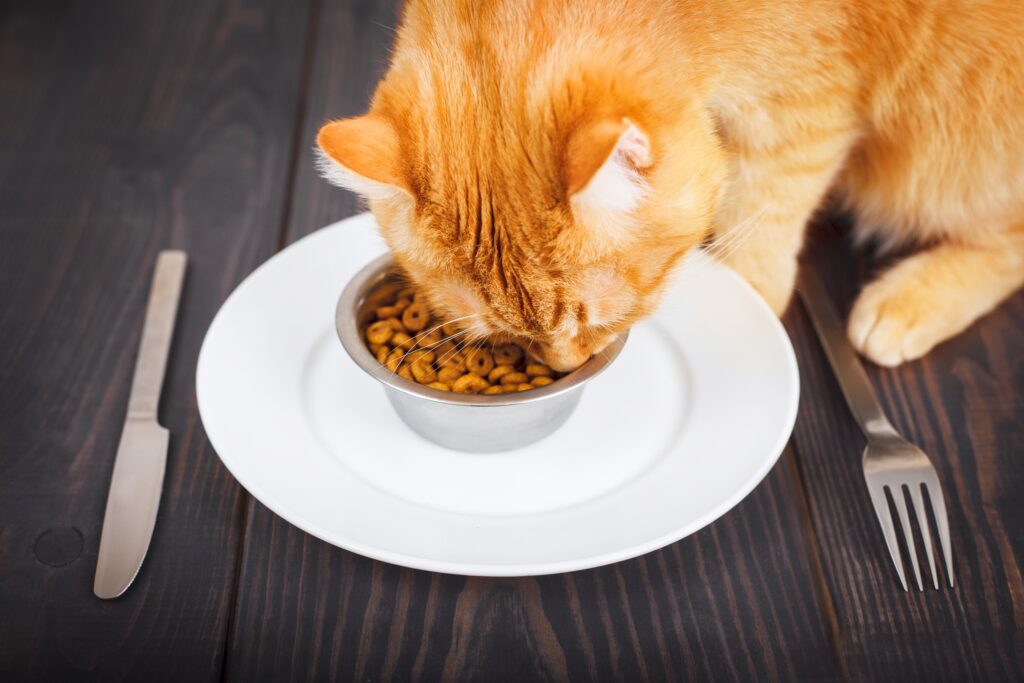
Wet or Dry Food?
Ultimately, the choice between wet or dry food comes down to your senior cat’s individual needs. Wet food can be beneficial for cats with dental problems or those who struggle to stay hydrated. However, dry food can also be a good option as it helps maintain dental health by scraping plaque off teeth as they chew.
In general, some wet food should be incorporated into every senior cat’s diet to ensure adequate hydration and promote digestive health.
Special Diets for Health Conditions
Some senior cats may have specific health conditions that require special diets.
For example, cats with kidney disease may benefit from a diet with restricted phosphorus and high-quality protein. Cats with diabetes might need a diet that helps manage blood sugar levels, such as high-protein, low-carbohydrate foods.
If your senior cat is dealing with chronic health problems, work with your veterinarian to determine the best diet plan tailored to your senior cat’s health needs.
Transitioning Your Senior Cat to New Food
Transitioning your senior cat to new food should not be done quickly. It requires patience and care to avoid digestive upset. Here’s the best way to introduce new food:
- Gradual Transition: Start by mixing a small amount of the new food with their current food. Gradually increase the proportion of new food over 7-10 days until they are eating only the new food. This slow transition helps prevent digestive issues like diarrhea or vomiting.
- Monitor Their Reaction: Watch closely for any signs of digestive upset or reluctance to eat. If any of these occur, slow down the transition process or mix in smaller amounts of new food.
- Maintain Routine: Keep their feeding schedule consistent to help them adjust to the new food more easily. Senior cats may be more sensitive to changes, so stability in their routine can reduce stress.
- Encourage Hydration: Ensure your senior cat drinks enough water during the transition. You can add water to their food or provide wet food to increase their water intake. Cat water fountains often encourage cats to drink more.
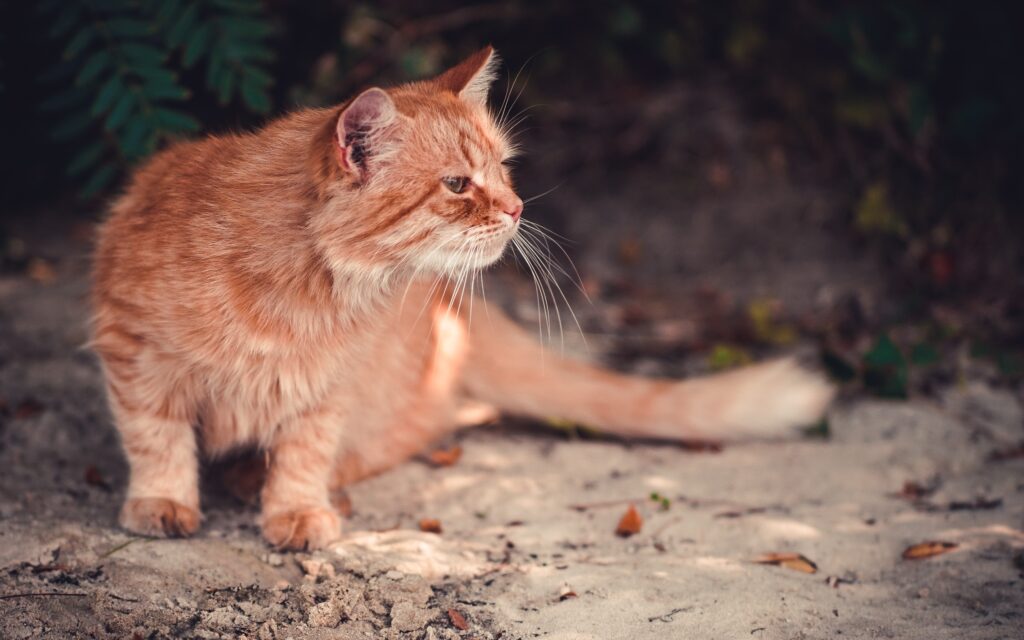
How Much Should I Feed My Senior Cat?
Determining the right amount of food for your senior cat depends on various factors such as their age, weight, activity level, and overall health.
Senior cats generally need fewer calories than younger cats, simply due to decreased activity levels. On the flip side, senior cats may need more calories due to a decreased ability to digest and absorb the nutrients in their food or from chronic health conditions.
In short, there is no “one size fits all” answer. However, a good place to start is to use the food label on senior cat food to guide you in determining appropriate portion sizes.
Look for feeding guidelines provided by the manufacturer based on your cat’s weight and adjust accordingly. Monitor your cat’s weight and body condition regularly, and consult with your veterinarian to be certain they are receiving the right type and amount of food to support their health as they age.
Special Considerations
Obesity and the Senior Cat: Obesity is a common issue in senior cats and can lead to health problems such as diabetes, arthritis, and heart disease. Managing their weight through portion control and appropriate diet choices is critical. Senior cat foods often have lower calorie content to prevent obesity while still providing essential nutrients.
Special Nutrition for Diseases of the Aging Cat: Cats may develop specific health conditions as they age, such as kidney disease or dental issues. Specialized diets formulated for these conditions can help manage symptoms. For instance, cats with kidney disease may benefit from diets low in phosphorus and high in quality proteins to ease kidney workload.
Giving Your Senior Cat Supplements: While some senior cats may benefit from supplements, such as omega-3 fatty acids for joint health or antioxidants for immune support, consult with your veterinarian first. They can recommend appropriate supplements based on your cat’s individual needs and health status. Over-supplementing can be harmful, so it’s important to use supplements carefully and under veterinary guidance.
Understanding these key factors and working with your veterinarian will help you make sure your senior cat gets the care and nutrition they need to age healthily and comfortably. Regular vet check-ups and necessary adjustments to their diet and supplements can proactively address aging challenges.
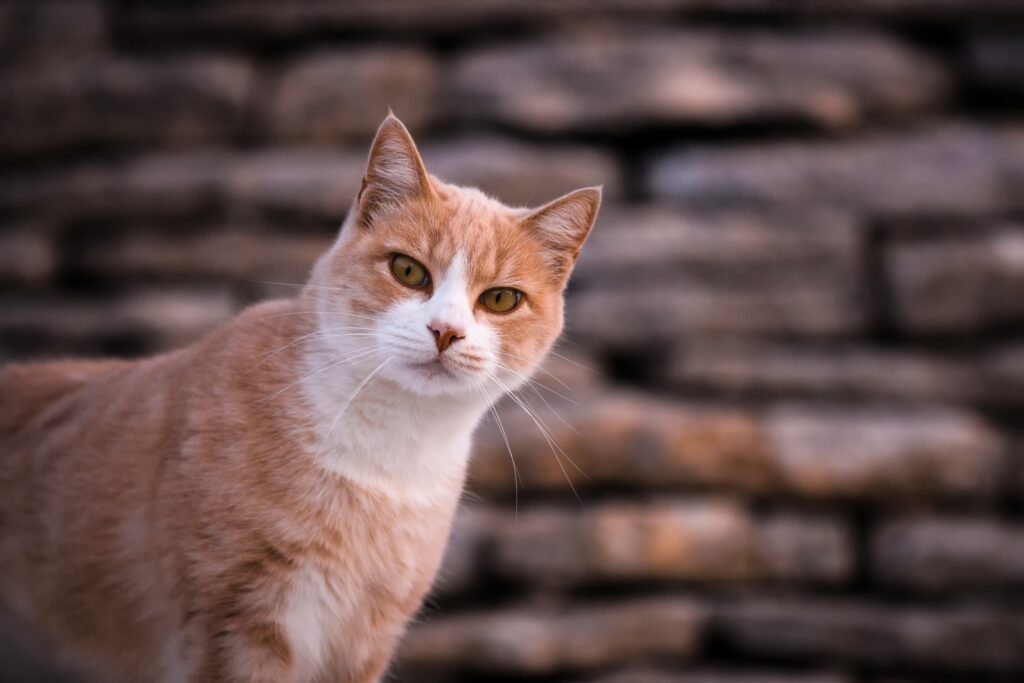
Managing Appetite
As cats age, they sometimes lose their appetites or are reluctant to eat and start to lose weight. Sometimes a decrease in appetite is not really noticeable, until one day you suddenly realize that your cat has lost weight
This can be a sign of various health issues, including dental problems, thyroid imbalances, or underlying diseases like kidney disease. A decreased appetite in senior cats can also be caused by factors such as dental pain, medication side effects, or stress.
If your senior cat is losing weight, consult with your veterinarian promptly to identify the underlying cause. They may recommend a thorough health check-up, including blood tests and dental examinations, to diagnose and treat the problem effectively.
If a cat has stopped eating altogether, it is a medical emergency. It only takes a couple of days without food for a cat’s liver to start functioning abnormally, leading to serious and sometimes irreversible damage.
Senior Cat Feeding Tips
- Feed your cat in a quiet, comfortable area where they feel safe and undisturbed.
- Provide easy access to food that doesn’t require jumping or climbing.
- Use raised feeders if your senior cat has trouble bending down.
- Warm up wet food for cats who have difficulty eating cold food due to dental issues or just to make it more palatable to the cat’s senses.
If your cat continues to refuse food, seek veterinary advice as soon as possible. Your veterinarian may recommend appetite stimulants, dietary changes, or addressing any underlying health issues to help restore their appetite.
Summing Up
As a cat owner, providing the right nutrition for your senior cat as they age is an important responsibility.
By understanding their changing nutritional needs, choosing appropriate senior cat food, and addressing specific health issues like obesity or dental health, you can support their health as they age and help make sure that they remain by your side for many years.
Remember, every senior cat is unique, so personalized care and attention to their dietary and health needs is a must. Regular check-ups and consultation with a veterinarian can help you make sure that your senior cat is receiving the right balance of nutrients for their individual needs.
With proper nutrition and care, you can help your senior cat thrive well into their golden years.
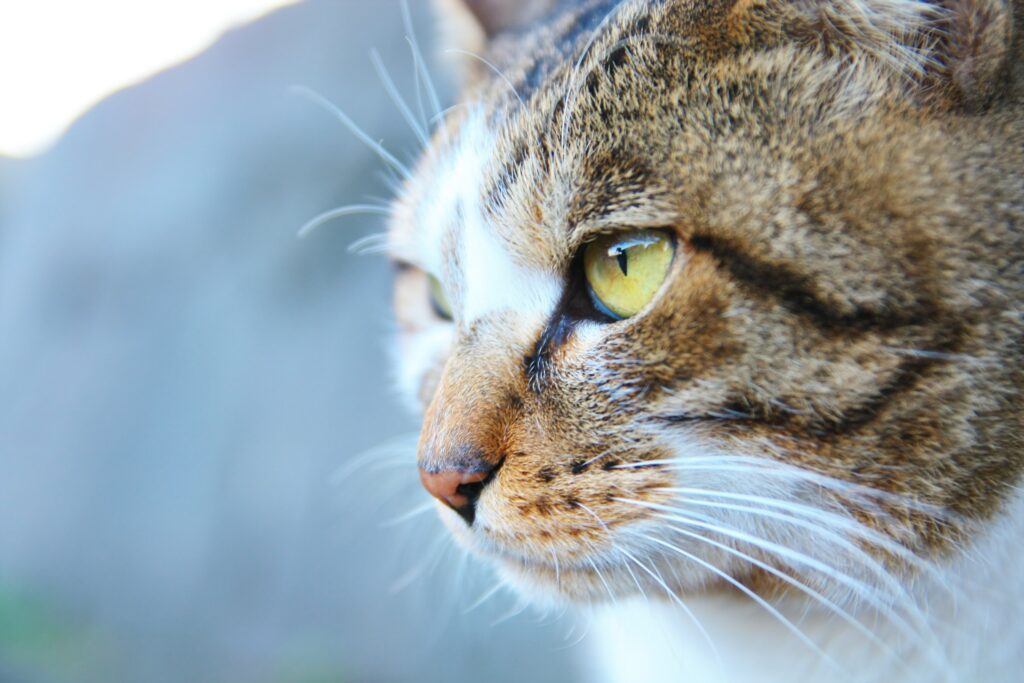
[All images used with permission or under license]

